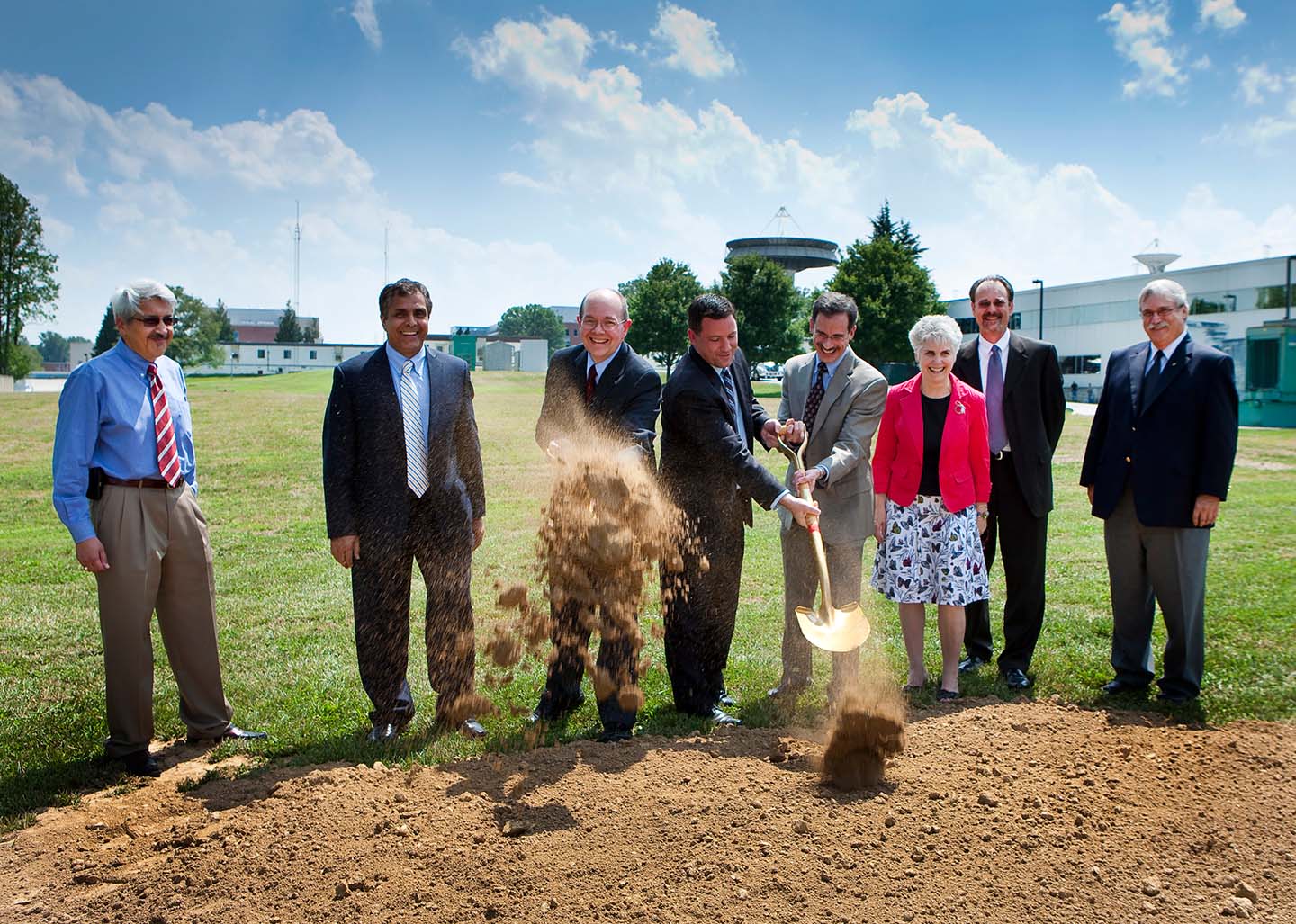Press Release
Johns Hopkins Applied Physics Laboratory Breaks Ground for Spacecraft Integration Facility
Officials from the Johns Hopkins University Applied Physics Laboratory (APL), along with government and construction industry representatives, broke ground July 16 for a new spacecraft assembly and testing facility on the APL campus in Laurel, Md.
Designated as Building 30, the $30-million facility is scheduled to open by fall 2012. The 47,500-square-foot building will include optics laboratories, mechanical assembly areas and a high-bay clean room area capable of supporting either classified or unclassified integration and test operations. APL, mainly through its Space Department, creates innovative systems that achieve objectives for NASA and space-related Defense Department missions.
“This building will provide additional significant capabilities for our Space Department, and enhance APL’s ability to make strategically important contributions to both civilian and national security space missions and projects,” APL Director Ralph Semmel told invited groundbreaking ceremony guests, who included Howard County Executive Ken Ulman.
The facility will complement APL’s existing spacecraft integration and test building (Building 23) with current generation clean room technology and networking infrastructure, higher hook heights (for lifting equipment) and larger entrances and open areas, allowing staff to assemble larger spacecraft and conduct tests on components that require more space, such as large solar-array deployments.
“What a great occasion for the Applied Physics Laboratory,” said John Sommerer, head of APL’s Space Department. “Just last December, APL celebrated its 50th anniversary as a space-faring organization. This facility will allow us to work on other spectacular voyages of discovery over the coming decades.”
APL has applied for Leadership in Energy and Environmental Design (LEED) certification for the new building. Overseen by the U.S. Green Building Council, LEED is a third-party certification program for the design, construction and operation of high-performance green buildings. The project is already off to a green start; APL was able to recycle 98 percent of the material from the 50-year-old structure (Building 11) demolished to make way for Building 30.
APL, a not-for-profit division of the Johns Hopkins University, moved to Howard County in 1954 from Silver Spring, Md., where it opened its doors in 1942. APL has approximately 4,500 staff members who occupy 32 buildings on a 399-acre main campus and six leased buildings in the adjoining Montpelier Research Park.
